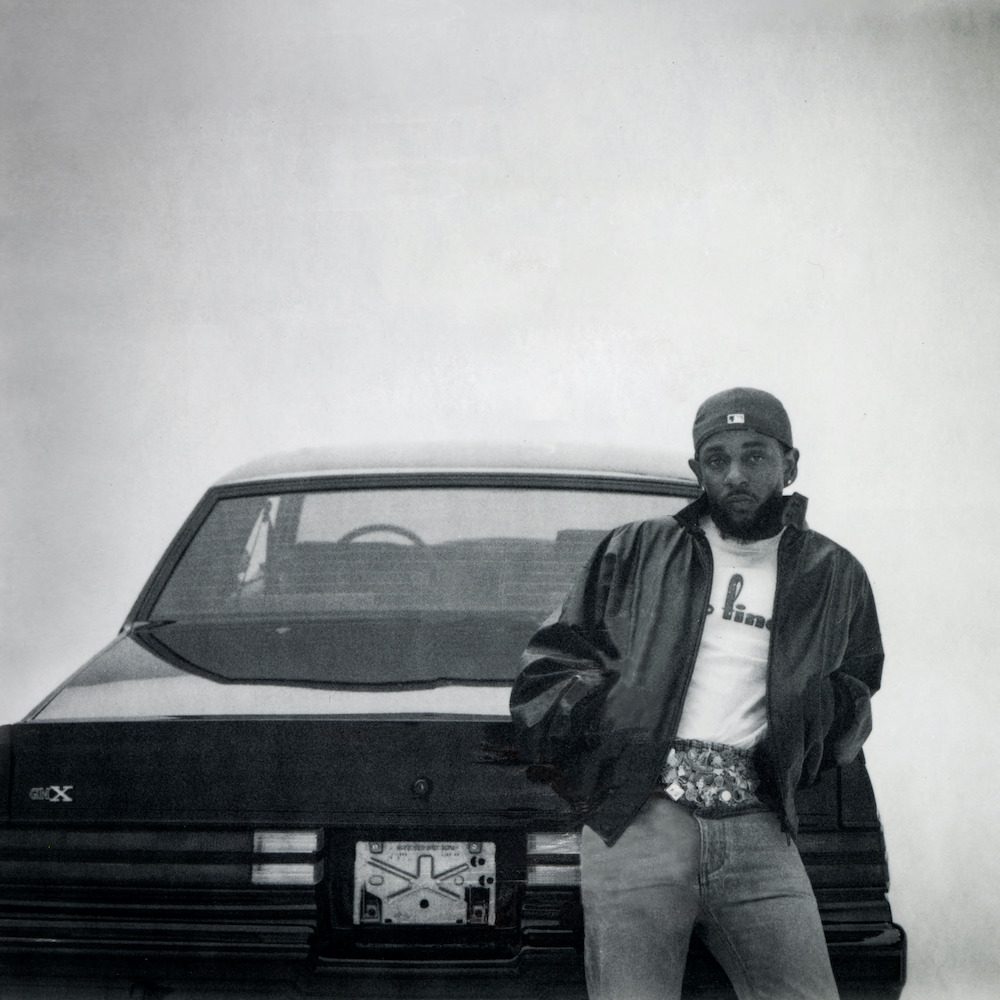
Rap music is miraculous. You could be staring down what promises to be a lazy Friday afternoon, the week before a holiday, and then you could glance at your computer and realize that the world has changed. The album that you’ve been waiting on, the one that you didn’t want to presume to expect, could suddenly fall out of the sky — the whole thing just arriving on your phone all at once. Shit could get crazy, scary, spooky, hilarious. It’s that rarest of beasts: the good kind of emergency.
there goes my #1
— Father John Misty (@fatherjohnmisty) November 22, 2024
A great album is one thing. There are lots of great albums. There are countless great albums that you’ll never hear, that the world will never acknowledge. And then there’s the other kind of great album, the kind that hits the earth like a meteor and immediately changes the composition of the atmosphere. If you’re old enough, you might recall the days after Get Rich Or Die Tryin’ came out. In certain cities, you would hear five different tracks from that LP whenever you left your apartment. Tha Carter III was like that, too. The Blueprint. Late Registration. And now GNX, the sixth studio album from Kendrick Lamar Duckworth, is about to join that pantheon. A great album, any great album, is cause for celebration. But the other kind of great album, the one that suddenly swallows up the world and becomes the immediate subject of every worthwhile conversation? That kind of album exists on a different level. It’s why we do what we do. It’s why we get up in the morning.
it’s okay only other times it’s happened was 2012, 2015, 2017 and 2022
— Father John Misty (@fatherjohnmisty) November 22, 2024
Kendrick Lamar has been responsible for this kind of stop-the-world moment before. This year, he did it over and over again. About 13 months ago, J. Cole invoked the idea of a “Big Three” on a Drake song, and this awoke the sleeping dragon. Kendrick Lamar was off on a different trip. He disappeared for years, and then he returned with Mr. Morale & The Big Steppers, a thorny and insular record about wrestling with his own demons and working on himself. He followed that release with the regular pageantry — the mesmerizing tour, the main-category Grammy losses, the social-media silence, the fun but infrequent collaborations with his little cousin Baby Keem. Kendrick Lamar was not playing the game. He was letting the game play itself. He was excluding himself from this narrative. But then one of Kendrick’s peers dared to suggest that Kendrick could have peers, and that was enough.
The Kendrick Lamar/Drake feud was unforgettable spectacle, a gloriously petty soap opera, titans clashing on our computers for days at a time. At any moment, you could glance at your phone and learn that this epic novel had another chapter. Freddy and Jason were fighting. You weren’t safe when you were sleeping, and you weren’t safe when you were awake. This time, though, there was a decisive victor. Freddy’s severed head did not wink at the camera in the last shot. Instead, one guy went off to sulk, and the other reveled in the carnage. We’ve never seen a rap feud have this kind of effect on the wider world: a #1 pop hit, a Super Bowl Halftime Show headliner gig, multiple Grammy nominations in the biggest categories. An Amazon livestream where NBA stars danced onstage next to little kids in clown paint, throwing up gang signs. Fellini shit. Antonioni shit.
Kendrick Lamar did all this without releasing an album. He shocked the world, one song at a time. The last six months have been one prolonged victory lap, interrupted only when Kendrick publicly questioned his own path on another untitled-unreleased Instagram drop. That victory lap does not extend to GNX. Kendrick’s earthshaking diss tracks do not appear on this album. He might be on top of the world, but he clearly doesn’t feel that way. GNX is not an album that rides on the fumes of a glorious moment. Instead, it’s driven by pride, spite, fury, disgust. Thank god.
The label found out this morning lol
— Z (@BrianZisook) November 22, 2024
The opening moments on GNX belong to the Los Angeles mariachi singer Deyra Barrera. She appears throughout the record like a Greek chorus, howling operatic sadness and reinforcing the idea that we’re witnessing something of vast cinematic scope. But when Kendrick Lamar first appears, he does it with this line: “Yesterday, somebody whacked out my mural.” That’s his focus — not the fact that someone painted a mural of his face on a Compton wall, but the fact that someone else came along and defaced that mural. As anyone who’s ever had a Twitter account can tell you, the disrespect stays with you so much longer than the love. It stings, and then it festers. When everything works right, it might animate you. This time, everything worked out right.
On “wacced out murals,” the opening track from GNX, Kendrick isn’t just worried about whoever fucked with that street art. Instead, he marinates and luxuriates in every perceived insult that he’s gotten from a rap legend. Oh, Lil Wayne is heartbroken that someone else got to play the Super Bowl in New Orleans? Then fuck Lil Wayne. “Used to bump Tha Carter III, I held my Rollie chain proud/ Irony, I think my hard work let Lil Wayne down.” Oh, Snoop Dogg wasn’t disgusted with the Drake diss track where he used AI to impersonate 2Pac and Snoop? Then fuck Snoop Dogg. “Snoop posted ‘Taylor Made,’ I prayed it was the edibles/ I couldn’t believe it, it was only right for me to let it go.”
Hey, if that’s what it takes, then that’s what it takes. Because right now, Kendrick Lamar is rapping. He’s in cobra mode — all tensed-up coiled muscle, ready to pump deadly poison into the ankle of anyone who steps too close to him. There is nothing like a focused, pissed-off Kendrick Lamar. His voice somersaults frantically over these tracks, careening wildly from one flow to another with such adrenaline-charged immediacy that you almost can’t believe how sharp the writing is. Like every Kendrick Lamar album, GNX continuously switches modes, aesthetics, ideas. Like every Kendrick Lamar album, it refuses to sit still. This time, though, Kendrick Lamar is driven by a unifying idea. In one sentence, that idea is this: Kendrick Lamar is the greatest of all time, and we do not deserve him.
taking the lyrics of “TV Off” and really holding space with that
— PAPPADEMAS (@PAPPADEMAS) November 22, 2024
Six months ago, Kendrick scored his knockout blow with “Not Like Us.” That song wasn’t just sex-pest allegations and condescending history lessons; it was also some deep West Coast shit — Mustard beat, Drakeo The Ruler flows. Kendrick went back to the source. It wasn’t N.W.A 808 booms or Chronic synth-whines. It was the Southern California rider music of right now, the sounds that remain geographically and culturally rooted even as they conquer the pop charts. That was the starting point for GNX. Kendrick learned just how effective he can be when he engages with the music that’s just under the surface. Here, he makes use of that knowledge.
On “wacced out murals,” the churning action-movie strings give way to the kind of synthetic bass-boom that Too Short would’ve ripped up in 1988. On “squabble up,” he blacks out on slap-blap trunk-rattle thunder and Latin-freestyle roller-disco energy. For “hey now,” it’s itchy menacing-whisper minimalism. The “peekaboo” beat sounds like bing bop boom boom boom bop bam. The title track sounds like it’s playing forward and backwards at the same time. The single greatest goosebump moment on the whole album might arrive halfway through “tv off,” when the clipped strings dissolve into Viking-berserker horns and Kendrick screams Mustard’s name like he’s mad at God. On top of all that, there’s “reincarnated,” where Kendrick honors a patron saint’s memory with an inspired sample-flip.
Kendrick flipping this >>>
One of the greatest Pac songs ever pic.twitter.com/4fL1VIMQ8x
— Andrew Barber (@fakeshoredrive) November 22, 2024
I cannot believe the production on this thing. How do you keep this secret? These aren’t beats that someone slaps together on a laptop and then sends over in a zip file. Even when they’re cold and hard, the instrumental tracks are also lush and layered. Every song has multiple credited producers, including some big California guns: Mustard, Kamasi Washington, Terrace Martin. But the album never feels like a jumble of too many styles, and maybe some of the credit should go to the two names that appear in the credits of virtually every track: Kendrick’s longtime collaborator Sounwave and… hmm. Look at that. Jack Antonoff. Good job, Jack Antonoff.
nah jack antonoff innocent idk what guitar music twitter be talking about
— brandon (@callenderdates) November 22, 2024
The samples and allusions have been chosen with real intention. They locate the album within tradition and lived experience. GNX is named after the ’87 Buick Grand National that Kendrick coveted as a kid, and now he wants us to know that he’s riding around and bumping Anita Baker from his tape deck. Certain voices float through. SZA sings a duet with the ghost of Luther Vandross. SWV soundtrack Kendrick’s bittersweet ode to his old TDE running buddies. Sam Dew croons that he’s got his 50 on him, so don’t die tryin’ in this bitch. When Kendrick sings about seeing spaceships on Rosecrans, he feels like Fabo. When he turns relationship raps into elaborate personification writing exercises, he feels like Common Sense.
Other rappers appear on GNX, but none of them are obvious names. Instead, they’re LA underground figures: AzChike, Dody 6, YoungThreat, Hitta J3, Peysoh, Wallie The Sensei. Roddy Ricch is in here, but only as a backup singer. I thought that was YG at the end of “tv off,” but no, it’s someone named Lefty Gunplay. Those are the voices inspiring Kendrick right now, and he meets them on their wordy, guttural, instinctive level. He sounds like he’s home.
Every Kendrick Lamar album combines anthemic bangers with thoughtful, expansive self-interrogations. I always prefer the bangers, but there are no indulgent momentum-killers among inward-looking songs on GNX. The sad and fond memories on “heart pt. 6” are genuinely gripping, and the Sixth Sense-level twist at the end of “gloria” genuinely shocked me. The singsong lope of “dodger blue” briefly allows Kendrick to sound content with the world, while “luther” glimmers like puddles in the sun. Even at its slowest and most ornate, this music is always funky. It always moves.
“man at the garden” isn’t the best song on GNX, but it might be the most telling. The music is a lush, moody synthscape that recalls the moments of Phil Collins’ “In The Air Tonight” before the drums come crashing in. Over that evocative slow boil, Kendrick keeps coming back to one four-word phrase: “I deserve it all.” He’s right. Kendrick Lamar cemented his place in rap’s eternal lineage long ago, and the events of the past year have reminded the world of what he can do when he’s in his zone. Few people would’ve denied him his flowers. But we can only feel intense gratitude for Kendrick’s detractors today. They motivated him to make this.
Two songs into GNX, I knew I was hearing a classic album. Six songs in, I knew I was hearing a historic moment. As I write this, GNX has existed for four and a half hours, and I’m ready to tell you that it’s the best album of 2024 and the greatest work of Kendrick Lamar’s career. Maybe that initial euphoria will fade. Maybe I’ll eventually put everything in sober perspective and concede that it’s merely a great album. I hope not. Miracles should always feel like miracles. Fuck being rational.
GNX is out now on pgLang/Interscope.



